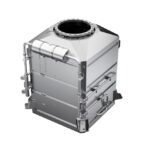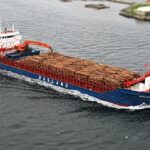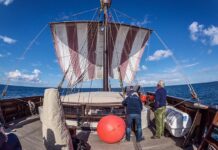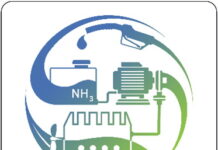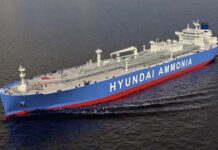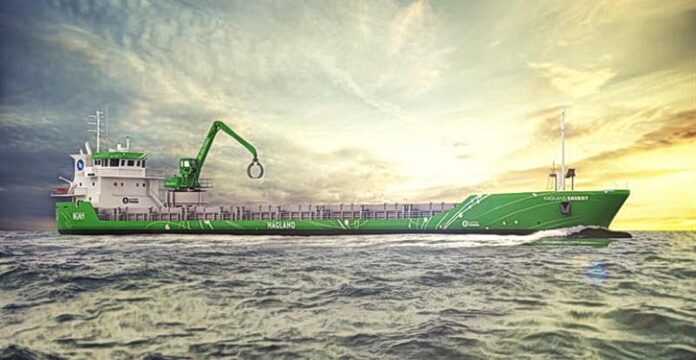
According to the technology group of Wärtsilä they have signed an agreement with the international shipping company Hagland Shipping AS for a hybrid retrofit installation. The project will take place onboard the HAGLAND CAPTAIN, a general cargo vessel owned by Hagland Shipping as Wärtsilä says. It will be the first project of its kind ever in short-sea shipping applications. The agreement was signed in December 2018.
The installation of a Wärtsilä battery hybrid propulsion solution will significantly enhance the ship’s environmental performance by reducing its emissions, fuel consumption, and noise. Included in the solution are a shore power connection to provide power for loading/unloading operations and for battery charging, a new reduction gear with power take-off (PTO) and power take-in (PTI) technology, and a Wärtsilä NOx Reducer (NOR).
The Wärtsilä NOx Reducer (NOR) is an emission after-treatment system based on the Selective Catalytic Reduction (SCR) technology for Nitrogen Oxide (NOx) reduction. The NOR is optimized and validated for the companys medium speed engines in terms of reliability, flexibility, size and easy installation and maintenance onboard. It is available for both newbuilds and retrofits and is compatible for operation on both distillate and heavy fuel oils. Furthermore, with the NOx Reducer, the overall performance of the engine and exhaust gas cleaning system is optimized in terms of emissions reduction, noise abatement and engine efficiency.
It is estimated that the total reduction in nitrogen oxide (NOx) emissions after the retrofit could be as much as 80 to 90 percent, while overall fuel cost savings are expected to be in the range of 5 to 10 percent. The battery capacity will be sufficient to sail in and out of harbour on electric power for approximately 30 minutes, which will effectively reduce noise and pollution levels in the vicinity of the harbour.
The project is in response to a collaborative agreement between Hagland Shipping and NOAH AS, the Norwegian environment and resource company, whereby the shipping of materials to the island of Langøya in Norway is required to be via environmentally sound vessels. Wärtsilä’s solutions will play a crucial role in enabling the HAGLAND CAPTAIN to meet this requirement. Valuable input to the project concept has been given by the non-profit NGO, Bellona.
“Wärtsilä has been chosen as a partner due to their significant experience in providing environmentally sound solutions such as hybrid systems,” says Oivind Wendelboe Aanensen, COO, Hagland Shipping AS. “Wärtsilä’s forward-leaning and supportive approach has enabled Hagland and NOAH to arrive at an optimal solution. We believe our mutual project will have a considerable impact in the market and will further the environmental drive towards sustainable solutions in short-sea shipping.”
“Environmental considerations are increasingly important for fleet owners around the world. The need for the latest smart marine technologies has been seen for some time already in deep sea shipping, and this project is evidence that the need also exists in short-sea transportation. Wärtsilä is responding to these developments with its Smart Marine Ecosystem approach, which through the use of high levels of digitalisation and connectivity, is creating greater efficiencies, increased safety, and more sustainable solutions,” says Paul Kohle, Director, Sales & Sales Support, Asset Management Services, Wärtsilä Marine.
The companys hybrid solutions are based on a ‘first-of-its-kind’ fully integrated hybrid power module. This combines engines, an energy storage system using batteries, and power electronics optimised to work together through a newly developed energy management system (EMS). By increasing the power redundancy, the system allows the engine to operate closer to its optimum design point where it has highest efficiency and least emissions. This will result in reduced maintance need and increased systems performance. Rapid response from the battery system are also among the benefits offered. It marks a new frontier in marine hybrid propulsion.

